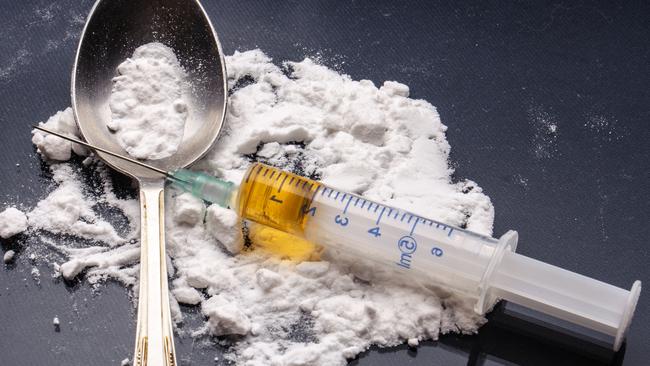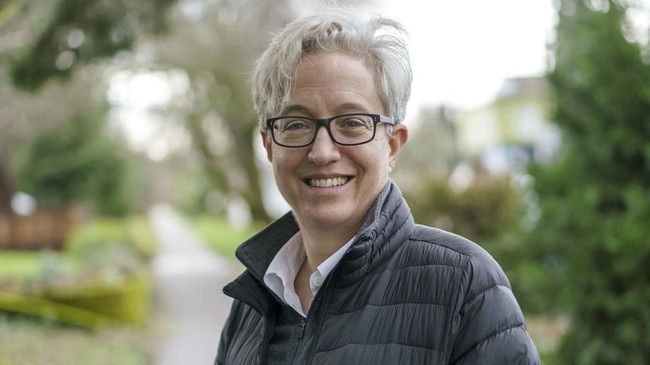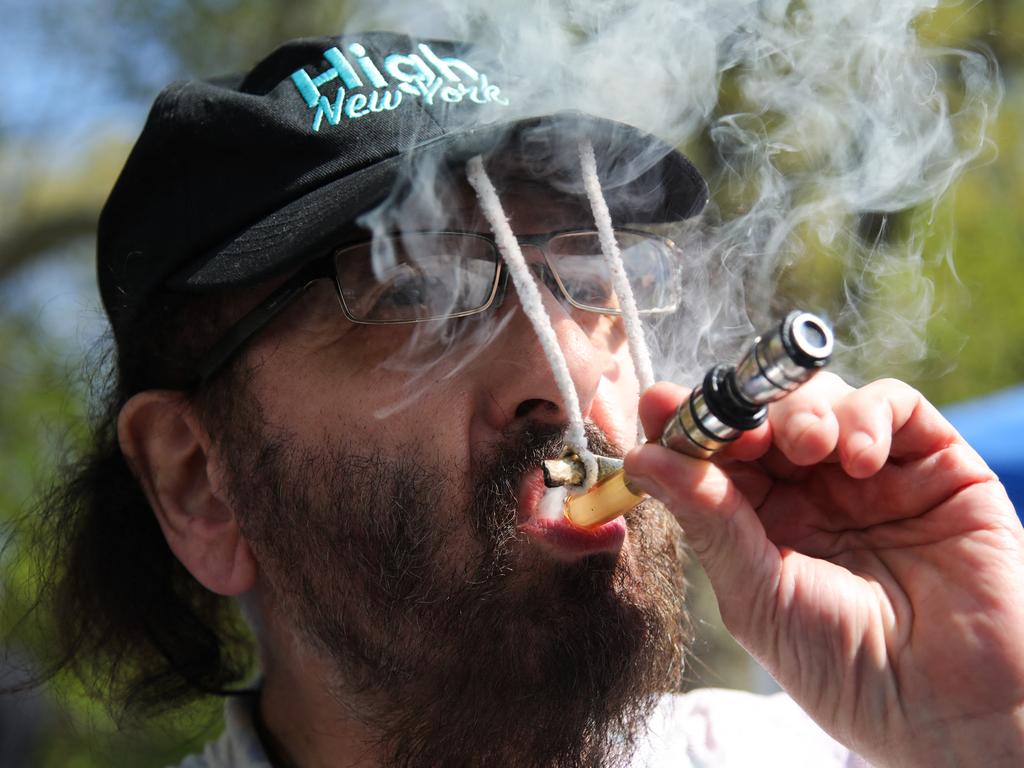When drug decriminalisation is not enough: lessons for ACT
As experiments in Canada and the US show, drugs harm minimisation has nasty side effects.

The misery and sense of personal unease struck me with particular force when a cab driver took me to the historic streets of Gastown. When dropping us off at a cool cafe, he warned us not to cross the road into the next block.
We took his advice, but still we bumped into a young man staggering, shooting up in the middle of the pavement. It was the same when we walked too far up Granville St. The change from one block to the next was like day and night, like walking into an open morgue where bodies were lying around, except these souls were twisted and contorted, some bent over as they took drugs. Those able to stand resembled zombies.
I have never felt a sense of despair and apprehension in cosmopolitan and welcoming Canada after coming here for 20 years. But in this pocket of Vancouver, simply crossing a road makes feeling safe a thing of the past.
Vancouver’s issues are longstanding and nobody sensibly suggests the causes are simple. However, a recently introduced trial policy to decriminalise possession of small amounts of drugs seems at this early stage of the trial to have increased public use of drugs, overdose deaths and public disorder.
As the ACT considers liberalisation of drug laws that will no doubt pile pressure on Australian state governments to follow suit, and the federal Greens have this as their official policy, we should pay close attention to Vancouver. The US state of Oregon is also worth a careful look.
The British Columbia trial drug policy started – as these things always do – in a blaze of idealism and hope allegedly based on science. It quickly transpired – as is also common – that the idealism was unsupported by critical thinking, constructive scepticism or necessary infrastructure. A little less parliamentary Pollyanna and a lot more hard-nosed parsing of the detail of the policy might have saved everyone some nasty unforeseen consequences.
The policy was introduced in response to a wave of opioid and other drug overdoses with fentanyl abuse seemingly everywhere.
In 2022, Canada’s federal government announced it would allow the province of British Columbia an exemption from its prohibitions on possession of small amounts of drugs for a three-year period starting on January 1 last year. From that date, people over 18 possessing up to 2.5g of illicit drugs for personal use would not be arrested or charged. The exemption applied to a wide range of drugs including opioids, cocaine, methamphetamine and MDMA (or ecstasy).
Federal mental health and addictions minister Carolyn Bennett suggested at the time the BC exemption could serve as a template for other jurisdictions across Canada. Tellingly, she said they were doing it to save lives.
In an echo of progressive idealists everywhere, Bennett said: “For too many years, the ideological opposition to harm reduction has cost lives.”
It didn’t take long for that rationalisation to unravel. Writing in the Toronto Sun in September last year, Brian Lilley pointed out that the first six months of statistics on overdose deaths in BC showed overdose deaths at record highs. “The results aren’t just less than encouraging, they should be sending people screaming in the opposite direction,” Lilley wrote.
After a full year of the policy, the results were clear. Last year, 2511 people lost their lives to toxic drugs in BC, the highest annual death toll since a public health emergency had been declared in 2016. Given the 2.5g limit on personal use, it was inevitable that addicts would seek out a more potent mix within that capped limit.
Not only were death rates rising but public drug use had escalated, with rampant drug use in parks and other public spaces. Public disquiet about the policy grew and the folly of not limiting the policy to private places became so clear that even the left-wing New Democratic Party government of BC had to introduce restrictions.
In April this year BC Premier David Eby announced he had asked the federal government to reintroduce a ban on public drug use, though personal possession and use would still be allowed in private spaces.
However, as my own experience on two trips to Vancouver these past few weeks suggests, what is regarded as a private space seems to have an elastic definition.

British Columbia is not the only jurisdiction backing away from decriminalisation of drugs. The US state of Oregon has just announced that its three-year experiment with decriminalising drugs will be terminated. Oregon will now give those found with illicit drugs a choice – they can be charged or undergo treatment, including participating in health and “deflection” programs.
Oregon will now make personal use possession a misdemeanour punishable by up to six months in jail and is introducing harsher penalties for selling drugs near places such as parks. The state also is encouraging local authorities to develop addiction and health services.
Drug addiction, use and possession is a devilish public health and public policy problem. It’s extremely unlikely that we can regulate it out of existence. At the other end of the spectrum, simple deregulation is no panacea. Neither does it help to categorise the issue as simply a question of health policy or as simply a matter for the criminal law. As both the BC and Oregon experiments show, decriminalisation may be a good solution for the physical and mental health of users but it can devastate public safety and amenity without reducing overdoses or overall levels of drug abuse.
The current catchcry of harm minimisation seems attractive and is of course beloved of progressives everywhere. It should surprise nobody that the Australian Greens frequently echo the now discredited cry of former Canadian minister Bennett that for too long ideological opposition to harm minimisation has cost lives.
While the screeching aggression we see too often from Australia’s Greens is rarely evident in the generally amiable and well-meaning idealism of Canada’s progressives, the Greens’ drug policies in Australia, especially their love of decriminalisation, are almost identical. So, the evidence from BC should make both groups think twice.
Don’t count on the Greens waking up to reality. If your test is the number of drug overdose deaths, BC tells you harm minimisation is one of those under-analysed policy failures only the Greens could love.
To borrow again from Lilley in the Toronto Sun, BC has had record drug deaths “despite the fact that BC has implemented every harm reduction program that has been proposed, from safe injection sites to safe supply and effectively making all drugs legal. As each new measure has been introduced, drug overdose deaths have increased, except for a brief drop in 2019.”
So what does all this mean for Australia? I do not pretend to have the silver bullet. There will undoubtedly be many parts to any solution and there will be mistakes as we try things.
The one thing we must do is learn from BC, Oregon and all the places that have conducted large-scale social experiments on their populations.
Ignoring the social context of drug policy experiments is a recipe for loss of popular support, which in turn means loss of political support and taxpayer dollars. Too often progressive politicians are relaxed about turning public spaces into no-go areas because they don’t live near these benighted zones. One person’s harm minimisation policy can be another person’s hellish existence.








Vancouver, especially on a sunny September day, is a spectacularly beautiful city. Yet right next to the sparkling harbour and very close to the modern architecture of the CBD are pockets of drug use, homelessness and desolation compared by The Wall Street Journal writer Mary Anastasia O’Grady in May to Dante’s inner circles of suffering.